Getting to Know Wheat Berries
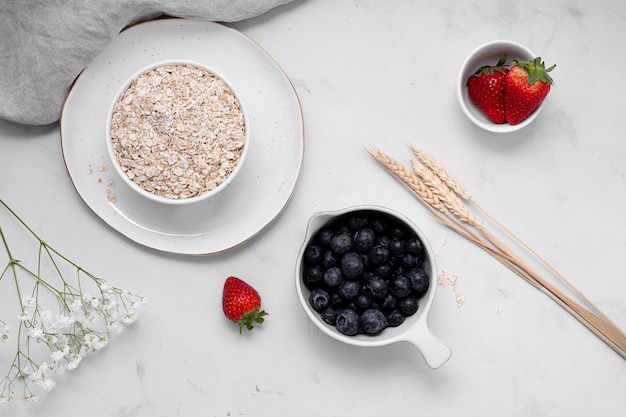
First things first, let's get acquainted with our star ingredient. Wheat berries, or farro as they're also known, are the whole, unhulled kernels of wheat. They've got this lovely nutty flavour and a chewy texture that adds a rustic charm to any dish.
The History of Wheat Berries
These guys have been around for ages, dating back to ancient times. They were a staple food for many civilizations, and for good reason. They’re incredibly versatile, filling, and packed with nutrients. If you’re a history buff like me, you'll appreciate that these grains have a rich and fascinating story. Imagine sitting down to a bowl of wheat berry porridge back in Ancient Rome!
Types of Wheat Berries
Now, you might be wondering about the different types of wheat berries out there. Well, there are three main varieties that you're likely to encounter:
- Common wheat: This is the most common type of wheat, and it has a slightly sweet and nutty flavour. It's a good all-rounder and works well in a variety of dishes.
- Emmer wheat: Also known as farro, this type has a firmer texture and a more pronounced nutty flavour. It's often used in hearty salads and soups, and it's the one you'll most likely find labelled as "farro" in grocery stores.
- Spelt wheat: This type has a slightly sweet, almost honey-like flavour, and a tender texture. It's fantastic in baked goods and desserts, adding a unique chewy element.
To be honest, you can’t really go wrong with any of them. They’re all packed with flavour and nutrition, and they offer a unique texture that you won’t find in other grains. So go ahead, experiment with different types and find your favourite!
(Part 2)The Secret to Cooking Perfect Wheat Berries
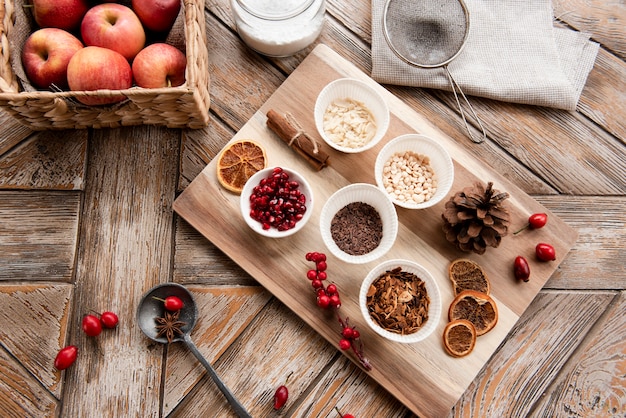
Alright, now that you’ve got a handle on the basics, let’s talk about cooking wheat berries. Here's the secret, my friend: it’s all about timing and technique. No need to be intimidated – it’s really quite simple. I’m going to break it down for you step by step.
Step 1: Rinse and Soak
You might think this step is a bit fussy, but trust me, it’s worth it. Rinsing your wheat berries removes any excess starch and dirt. And soaking them overnight softens them up, making them much easier to cook. You’ll be amazed at the difference it makes. It's like giving them a little spa treatment before cooking!
Step 2: Cook in a Pot
Here's the classic way to cook wheat berries. It's simple, reliable, and perfect for a large batch.
Instructions:
- Pour 1 cup of wheat berries into a large pot. Make sure the pot is big enough, as the berries will absorb a lot of liquid.
- Add 3 cups of water (or broth for added flavour). If you're using broth, make sure it's a flavour you enjoy, as it will infuse the wheat berries.
- Bring to a boil, then reduce heat and simmer for 45-60 minutes, or until the grains are tender but still have a slight bite. This is where the timing comes in - you don't want mushy wheat berries!
- If you’re using broth, add salt and pepper to taste. Adjust the seasoning based on the flavour of your broth.
Step 3: The Taste Test
Now, this is crucial! Once your wheat berries have simmered for a while, give them a taste test. You want them to be tender but still have a slight bite. If they’re still too hard, continue simmering for another 5-10 minutes. It's a bit like testing pasta for al dente - you want a little bit of chew.
Step 4: Drain and Fluff
Once they're cooked to your liking, drain the water or broth. You can do this in a colander or by carefully pouring it off. Then, fluff the wheat berries with a fork to separate the grains and let them cool slightly. This helps to prevent them from sticking together and ensures they're nice and fluffy.
(Part 3)Wheat Berry Recipes: A World of Possibilities
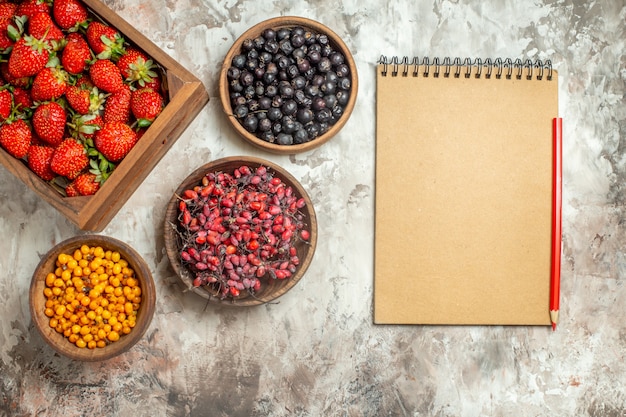
Now, let's talk about all the delicious ways you can use these versatile little gems. Whether you're looking for a hearty salad, a comforting soup, or a flavourful side dish, there's a wheat berry recipe for you.
Wheat Berry Salads
My personal favourite way to enjoy wheat berries is in salads. They add a satisfying texture and a nutty flavour that compliments so many ingredients. You can go simple with a classic vinaigrette or get creative with exotic dressings.
Here are a few ideas to get you started:
- Mediterranean Salad: Toss cooked wheat berries with chopped cucumbers, tomatoes, red onion, Kalamata olives, feta cheese, and a lemon vinaigrette. This is a classic combo that's both refreshing and satisfying.
- Fall Harvest Salad: Combine wheat berries with roasted butternut squash, pomegranate seeds, toasted pecans, and a maple-mustard dressing. The sweetness of the squash and the tangy dressing really complement the nutty wheat berries.
- Rainbow Salad: For a colourful and healthy salad, mix wheat berries with chopped bell peppers, broccoli florets, edamame beans, and a sesame-ginger dressing. This salad is a feast for the eyes and the taste buds!
Wheat Berry Soups
Wheat berries add a hearty and comforting element to soups. Their slightly chewy texture contrasts beautifully with creamy broth and vegetables.
Here are a few soup recipes to try:
- Tuscan White bean soup: A classic Italian soup with white beans, kale, and a touch of garlic. It's a simple but satisfying soup that's perfect for a chilly evening.
- Roasted Tomato Soup: The sweetness of roasted tomatoes blends perfectly with the nutty flavour of wheat berries. This soup is rich and comforting, with a touch of sweetness from the tomatoes.
- Curried Butternut squash soup: A flavourful and warming soup for cooler days. This soup is packed with flavour and nutrients, and the curry powder adds a nice kick.
Wheat Berry side dishes
Wheat berries make a wonderful side dish for any meal. They’re a great way to add a touch of rustic charm and a hearty element to your plate.
Here are some side dish ideas:
- Lemon and Herb Wheat Berries: A simple and flavourful side dish with the bright zest of lemon and fresh herbs. This is a great way to brighten up any meal.
- Roasted Garlic and Parmesan Wheat Berries: The rich flavour of roasted garlic and Parmesan cheese is a classic combination. It's a simple but delicious side dish that pairs well with grilled meats and vegetables.
- Spiced Wheat Berries: A touch of cinnamon, nutmeg, or ginger can add a warming dimension to your wheat berries. These spices complement the nutty flavour of the wheat berries and add a warm and comforting touch.
Tips and Tricks for Wheat Berry Cooking
Now, I've got some handy tips and tricks that will help you cook wheat berries like a pro. These little gems are actually quite forgiving, but here’s how to avoid any potential pitfalls.
Choosing the Right Wheat Berries
When choosing your wheat berries, look for plump and consistent kernels. Avoid any that are discoloured or damaged. The quality of your grains will make a difference in the final taste and texture. It's like picking out the best ingredients for any recipe - you want to start with the best possible quality.
Storing Wheat Berries
Wheat berries are best stored in a cool, dark, and dry place. A sealed container in the pantry is a good option. They have a long shelf life, so you can stock up and enjoy them for months to come. It's always a good idea to have a few bags of these versatile grains on hand.
cooking time Variations
The cooking time for wheat berries can vary depending on the type you’re using. Common wheat generally takes around 45-60 minutes, while emmer wheat and spelt wheat may take a bit longer. Always check the package instructions for the recommended cooking time. And don’t be afraid to adjust it to your liking. Taste as you go to make sure they're cooked to your preference.
Flavoring Wheat Berries
I love to add a touch of flavour to my wheat berries. Try adding a bay leaf, thyme sprigs, or a few garlic cloves to the cooking water for a subtle infusion. You can also add salt, pepper, or other herbs and spices to your liking. Get creative and explore different flavour combinations!
(Part 5)Wheat Berry Benefits: A nutritional powerhouse
It’s not just about taste, you know. Wheat berries are a real nutritional powerhouse. They’re packed with vitamins, minerals, and fibre. They’re also gluten-free, making them a great option for those who are sensitive to gluten.
Nutritional Value
Wheat berries are an excellent source of:
- Fibre: This helps with digestion and can lower cholesterol levels. It's a great way to keep your digestive system happy and healthy.
- Protein: This is essential for building and repairing tissues. It's a great way to keep your energy levels up and your muscles strong.
- Manganese: This mineral plays a role in bone health, wound healing, and blood sugar regulation. It's a vital nutrient for overall health and well-being.
- Phosphorus: This mineral is important for strong bones and teeth. It's also involved in energy production and cell function.
- Magnesium: This mineral is essential for muscle function, nerve function, and blood sugar control. It's also involved in over 300 biochemical reactions in the body.
- Selenium: This mineral is an antioxidant that helps to protect cells from damage. It's also important for thyroid hormone production.
These nutrients contribute to good health and well-being. Fibre helps with digestion and can lower cholesterol levels. Protein is essential for building and repairing tissues. And the minerals in wheat berries are important for maintaining healthy bones, muscles, and nerves. It's a nutrient-dense grain that can provide a boost to your diet.
Health Benefits
Adding wheat berries to your diet can have a number of health benefits, including:
- Improved digestion: The high fibre content helps to keep things moving along smoothly. It's like a natural digestive aid.
- Lower cholesterol levels: The soluble fibre in wheat berries can help to reduce LDL (bad) cholesterol levels. This can reduce your risk of heart disease.
- Increased energy levels: The complex carbohydrates in wheat berries provide a sustained release of energy. It's a great way to keep your energy levels up throughout the day.
- Improved blood sugar control: The fibre in wheat berries can help to regulate blood sugar levels. This can be helpful for people with type 2 diabetes or those who are at risk of developing the condition.
Overall, wheat berries are a healthy and delicious addition to any diet. They're a great way to boost your intake of essential nutrients and promote good health. It's a win-win for your taste buds and your overall well-being.
(Part 6)Wheat Berry Substitutes
Sometimes, you might not have wheat berries on hand, or you might be looking for a substitute for a particular recipe. Fear not, there are some excellent alternatives out there.
Quinoa
Quinoa is a great substitute for wheat berries in salads, soups, and side dishes. It has a similar texture and can be cooked in the same way. Quinoa is also a complete protein, meaning it contains all nine essential amino acids. It's a good option for those who are looking for a gluten-free and protein-rich substitute.
brown rice
Brown rice is another versatile grain that can be used as a substitute for wheat berries. It has a slightly nutty flavour and a chewy texture. Brown rice is a good source of fibre and other nutrients. It's a classic and readily available substitute that's always a good choice.
Farro
Farro, as you know, is a type of wheat berry, so it's a very similar substitute. It has a slightly firmer texture and a more pronounced nutty flavour. Farro is often used in hearty salads and soups. It's a great option if you want a slightly more intense nutty flavour and firmer texture.
(Part 7)Wheat Berry Recipes: A culinary adventure
Now, let’s dive into some specific recipes to give you inspiration. You’ll find that wheat berries are remarkably versatile and can be used in a wide array of dishes.
Easy Wheat Berry Salad with Roasted Vegetables
This salad is a great way to use up seasonal vegetables. The roasting brings out the natural sweetness of the vegetables, and the wheat berries add a hearty and satisfying element.
Ingredients:
- 1 cup cooked wheat berries
- 1 cup chopped broccoli florets
- 1 cup chopped Brussels sprouts
- 1/2 cup chopped red onion
- 1/4 cup olive oil
- 1 tablespoon balsamic vinegar
- Salt and pepper to taste
Instructions:
- Preheat oven to 400°F (200°C).
- Toss the broccoli, Brussels sprouts, and red onion with olive oil, salt, and pepper on a baking sheet.
- Roast for 20-25 minutes, or until tender and lightly browned.
- Combine the roasted vegetables with the cooked wheat berries in a large bowl.
- Drizzle with balsamic vinegar and toss to coat.
Hearty Wheat Berry Soup with Kale and Sausage
This soup is perfect for a cold winter day. It’s packed with flavour and protein, and it’s incredibly satisfying.
Ingredients:
- 1 tablespoon olive oil
- 1 pound italian sausage, casings removed
- 1 onion, chopped
- 2 cloves garlic, minced
- 1 cup cooked wheat berries
- 4 cups vegetable broth
- 1 (15-ounce) can diced tomatoes, undrained
- 1 bunch kale, chopped
- Salt and pepper to taste
Instructions:
- Heat olive oil in a large pot over medium heat.
- Add sausage and cook until browned. Make sure to break up the sausage as it cooks, so it browns evenly.
- Add onion and garlic and cook for 5 minutes, or until softened. You want the onion to be translucent and the garlic to be fragrant.
- Stir in wheat berries, vegetable broth, diced tomatoes, and kale. Bring to a boil, then reduce heat and simmer for 20-30 minutes, or until kale is tender. Make sure the kale is completely submerged in the broth, so it cooks evenly.
- Season with salt and pepper to taste. Adjust the seasoning as needed to your preference.
Sweet and Savoury Wheat Berry Pudding
This pudding is a unique and delicious twist on the classic. It’s a perfect balance of sweet and savoury, and it’s incredibly comforting.
Ingredients:
- 1 cup cooked wheat berries
- 1 cup milk
- 1/4 cup sugar
- 1 teaspoon vanilla extract
- 1/4 teaspoon cinnamon
- 1/4 cup chopped pecans
- 1/4 cup dried cranberries
Instructions:
- Preheat oven to 350°F (175°C).
- In a medium bowl, combine cooked wheat berries, milk, sugar, vanilla extract, and cinnamon. Make sure the ingredients are well combined.
- Stir in pecans and cranberries. This adds a nice crunch and sweetness to the pudding.
- Pour mixture into a greased 8-inch baking dish. Make sure the dish is greased so the pudding doesn't stick.
- Bake for 30-40 minutes, or until pudding is set and lightly browned on top. You want the pudding to be set but still slightly jiggly in the center.
- Serve warm or cold. Enjoy! This pudding is delicious both warm and cold.
FAQs about Wheat Berries
You’ve got questions, I've got answers. Here are some frequently asked questions about wheat berries, along with my helpful tips.
1. Are Wheat Berries Gluten-Free?
Unfortunately, no, wheat berries are not gluten-free. They’re made from wheat, which contains gluten. If you're looking for a gluten-free alternative, consider quinoa or brown rice. These grains are naturally gluten-free and can be used in many of the same ways as wheat berries.
2. How Long Do Cooked Wheat Berries Last?
Cooked wheat berries can be stored in an airtight container in the refrigerator for up to 5 days. They’ll stay fresh and flavourful, making them a great option for meal prep. This makes it easy to have a healthy and delicious meal ready to go when you need it.
3. Can I Freeze Cooked Wheat Berries?
Absolutely! You can freeze cooked wheat berries for up to 3 months. Just let them cool completely, then transfer them to an airtight freezer bag or container. To use them, simply thaw in the refrigerator overnight and then reheat. It's a great way to have a stash of cooked wheat berries on hand for quick and easy meals.
4. How Can I Tell If Wheat Berries Are Spoiled?
Spoiled wheat berries will have a musty or sour smell. They may also have a discoloured or moldy appearance. If you notice any of these signs, it’s best to discard the wheat berries. It's always better to be safe than sorry when it comes to food.
5. What are some other interesting ways to use wheat berries?
Besides salads and soups, you can use wheat berries in a variety of ways. Try adding them to breakfast bowls, making wheat berry burgers, or even using them in baking. They’re a versatile grain that can be used in countless ways. Get creative, experiment, and have fun!
(Part 9)Final Thoughts
There you have it! You’re now armed with the knowledge to cook wheat berries like a pro. Remember, it’s all about timing and technique. Don’t be afraid to experiment with different recipes and flavours. And most importantly, enjoy the delicious and healthy benefits of these little gems. Go forth and cook, my friend!
Everyone is watching

How to Cook Frozen Lobster Tails Perfectly: A Step-by-Step Guide
RecipesLobster. Just the word conjures up images of lavish meals, special occasions, and a taste of luxury. But let's...

Pigs in a Blanket Cooking Time: How Long to Bake for Perfect Results
RecipesAh, pigs in a blanket. Just the name conjures up images of those delightful little parcels of crispy pastry en...

Pork Fillet Cooking Time: How Long to Cook It Perfectly
RecipesPork fillet, or tenderloin as it's sometimes called, is a real favourite in our house. It's so versatile, and...
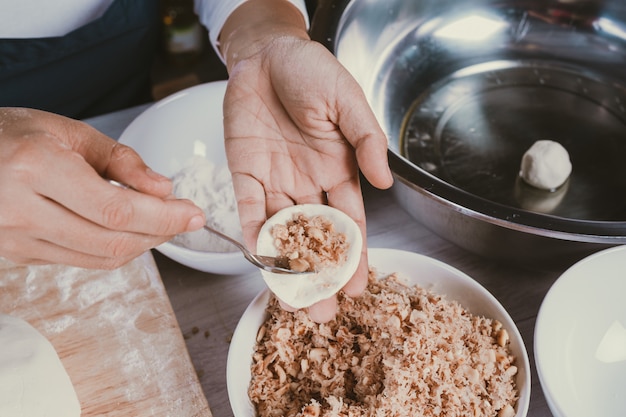
The Ultimate Guide to Tender, Juicy Pulled Pork
RecipesRight, let's talk pulled pork. It's one of those dishes that just screams "comfort food," doesn't it? I mean...
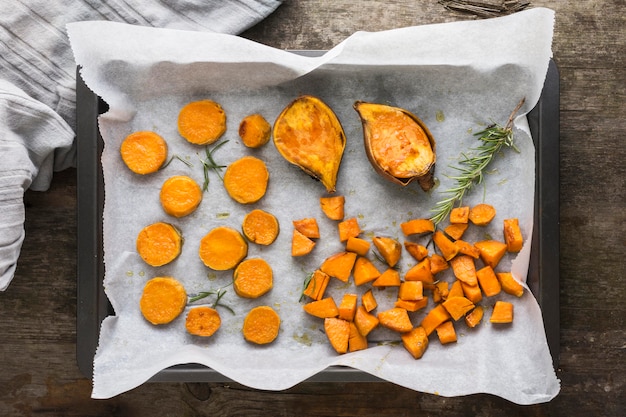
The Ultimate Guide to Cooking Sweet Potatoes: From Roasting to Mashing
RecipesSweet potatoes. Just the name conjures up images of warm, comforting dishes, bursts of vibrant color, and a to...
